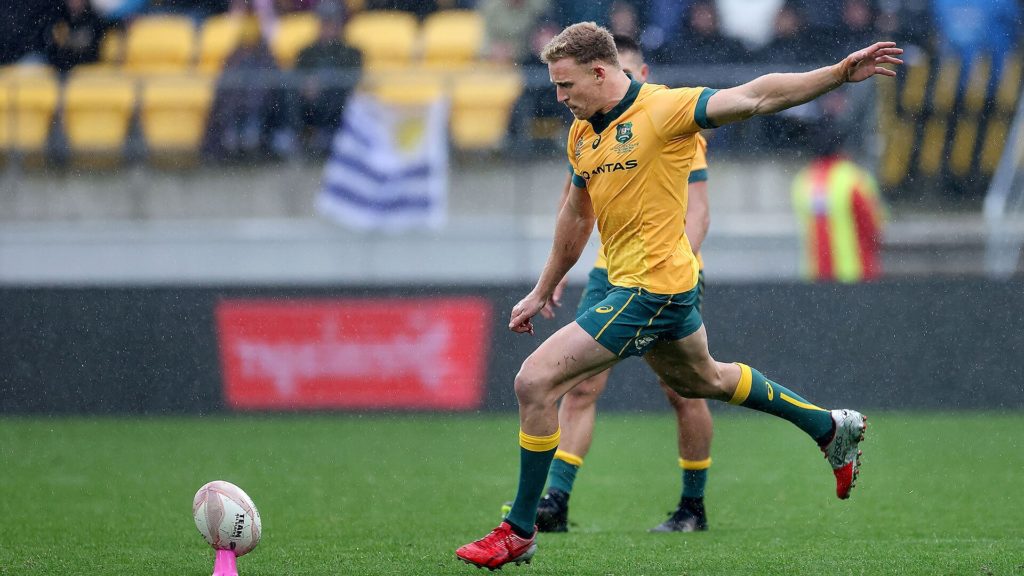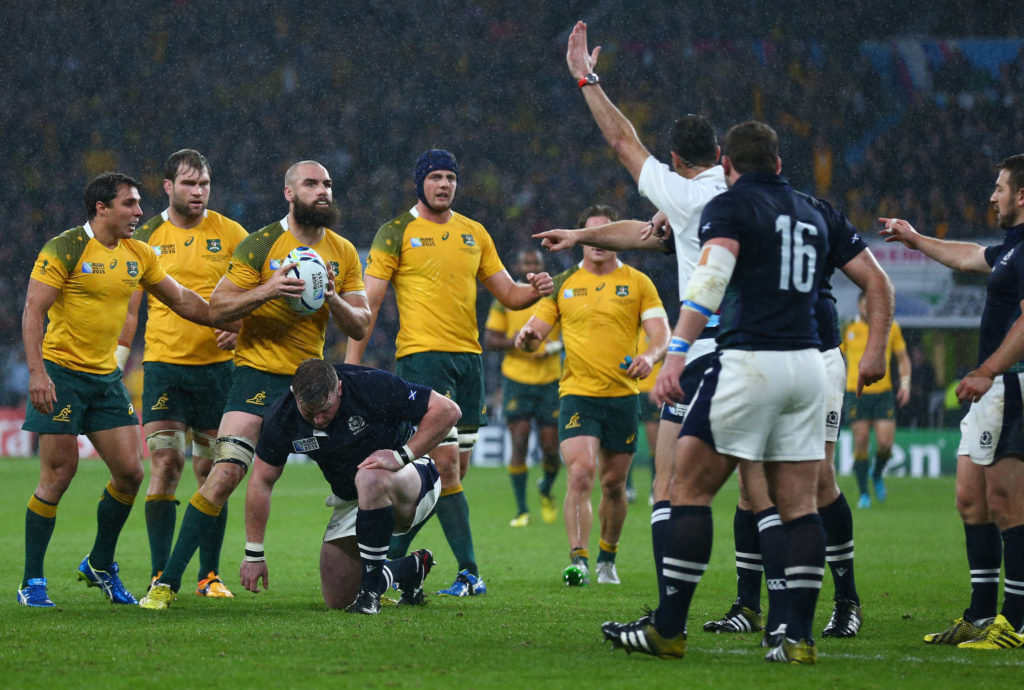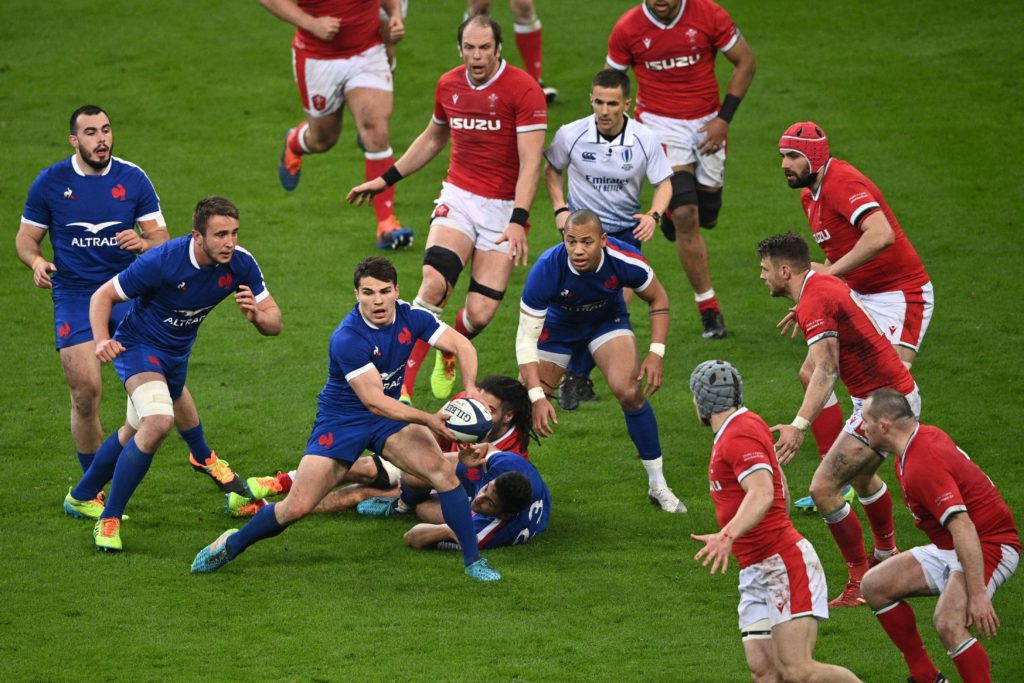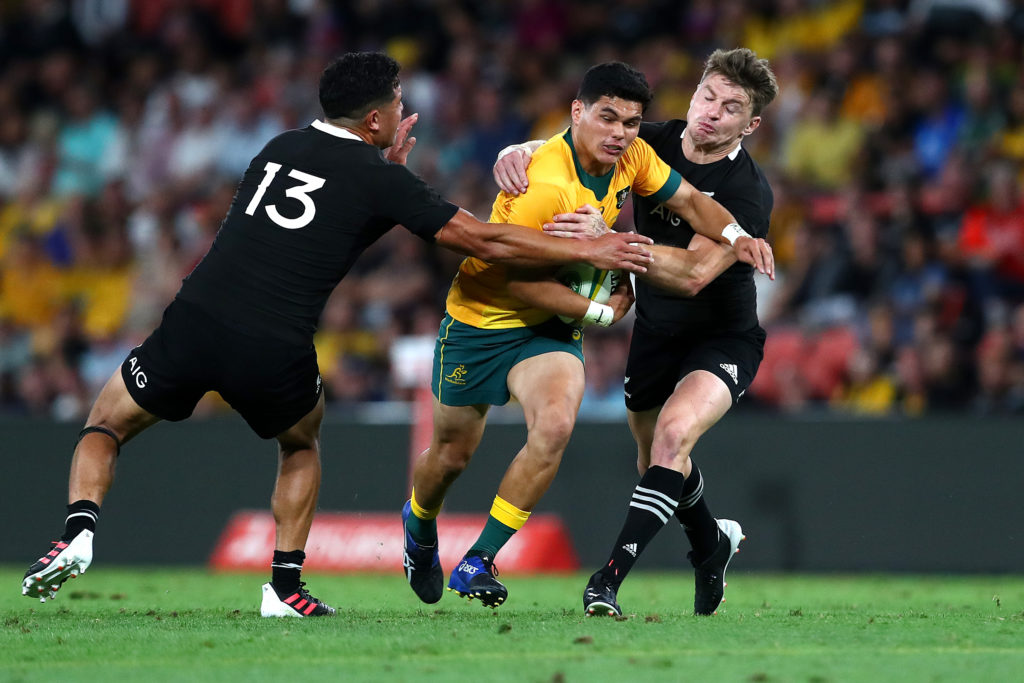Of all the preamble ahead of the Wallabies’ opening test against France, one comment stands out.
Asked what success looks like for a rebuilding Wallabies team, respected assistant coach Scott Wisemantel did not dodge the question or trot out the usual mundane response. “I think winning, for a start,” Wisemantel told The XV in late June. “I think Australian rugby, we need to win.
“As a coaching staff, we’re under no illusions, there’s pressure. There’s always pressure when it’s test match rugby.”
The stakes are high for Australian rugby heading into their three-match series against France.
Not since the mid-20th century has Australian rugby been at such a low ebb. There have been dips along the way. Of course there has, in a country where rugby union and its league cousin have had a tug-and-war relationship.

Even after the success of the 1980s under Allan Jones and later Bob Dwyer, who oversaw the Wallabies’ success at the 1991 World Cup, there was trouble around the corner. But in the in-between years of Australia’s two World Cup triumphs, the Greg Smith years were forgettable and coincided with News Limited’s Super League raid which brought the very threat of a mass player exodus to rugby league.
As recently as 2014, the Wallabies were a team struggling both on the field and off it – leading to the ugly resignation of coach Ewen McKenzie, a World Cup winner and one of the shrewdest minds in Australian rugby, who has since been lost to the game.
There was a brief period of success under Michael Cheika in 2015, as the Wallabies shocked everyone, including Australians, to reach their third World Cup final, which followed a rousing victory at the Olympic Stadium against the All Blacks to win The Rugby Championship. But since then, the slide down the rankings has only been matched by the lack of coverage across Australia on the game.
At the turn of the century, Australian rugby was the envy of the world. The Wallabies were the hottest ticket in town as 109,874 people watched the ‘The Greatest Ever Rugby Match’ as the All Blacks held on to beat the Wallabies in a match for the ages.
The game’s struggles have been well documented since then, culminating in one of the ugliest and messiest fallouts in Australian sport when Wallabies star Israel Folau – the first to claim three John Eales Medals – was sacked in the autumn of 2019.
Once again, rugby in Australia finds itself trying to make a splash in a congested sport’s market, where it currently sits well below rugby league, Aussie Rules and cricket. Even American sports like the NFL and NBA now garner more headlines than rugby, which is viewed with a stench by the majority of the mainstream media.
That is why Wisemantel’s comments are important, because only winning can change the perception of rugby as a sinking ship, a game dying a thousand deaths.
While The Sydney Morning Herald gives space to rugby union regularly, their dedicated coverage is in part because their owners – Channel 9 – are the new broadcast rights holders. Outside of the paper, rugby is in a battle for coverage.
When the Wallabies were given a World Cup lifeline in 2015 as Craig Joubert pinged Scotland for an accidental offside to allow Bernard Foley to step up and slot a match-winning penalty, Australian rugby – as it so often has over the years – jumped back on the bandwagon. So did the papers.
The Wallabies did not win the World Cup, but Australians believed the game had turned the corner under the messiah Cheika.

It took one of Australia’s very own, Eddie Jones, to pop that bubble as the England coach beat the Wallabies 3-0 in their first series after the World Cup in mid-2016. The Wallabies never recovered – and Australians have lost faith in the game since.
Last year’s glimmer of hope coming out of windy Wellington, where the Wallabies came within a right upright of victory and had to settle for a draw against the All Blacks on enemy soil, was a significant statement under the new coaching structure and leadership of Rugby Australia.
Ultimately, however, it proved to be another false dawn as the Wallabies were beaten at Eden Park and then suffered a record defeat to the All Blacks in Sydney to lose their grip on the Bledisloe Cup for an 18th straight year.
The Wallabies might face the All Blacks – the toughest team in world rugby – more than anyone else, but Australians compare themselves to only one nation: New Zealand.
It’s why putting a stake in the ground against France is essential.
Not only do the Wallabies need to reintroduce themselves to the Australian public by beating the French, they need to rediscover the art of winning before taking on the All Blacks, who put on 102 points against Tonga in their opening test of the year to make a much-needed statement of their own under Ian Foster.
The sins of the past, by selecting an out-of-form Damian McKenzie at fullback in the opening Bledisloe fixture last year and playing Jordie Barrett out of position on the wing, won’t be repeated by Foster in his second year in charge. The Wallabies will take on a stronger All Blacks side with Brodie Retallick back and the freakish talents of Will Jordan out wide to call upon.
While the Wallabies will settle for a series win, Rennie’s men should be targeting a 3-0 series clean sweep over the French ahead of the Bledisloe Cup series.
This French side is a shell of what it was during the Six Nations, with the majority of their first XV side missing, including Antoine Dupont, Brice Dulin, Virimi Vakatawa, Greg Alldritt and captain Charles Ollivion.

It led to one of the Wallabies’ most capped players receiving text messages from French players asking how soundly the tourists would be beaten.
France has 135 caps in their team for the opening test against the Wallabies, Michael Hooper alone has 105.
Rennie has picked a team to win.
It is one of the most menacing Wallabies forward packs in years, with the strength of the side shown in who has been left out of the starting XV.
Taniela Tupou will come off the bench, while Lachie Swinton, one of the few players of the past decade to put some fear into the All Blacks’ eyes on debut last year, not making the squad altogether, along with Sitaleki Timani.
Loose forward Rob Valetini has finally arrived in professional rugby and looks set to make an impression in test footy after slowly finding his feet.
Together with Harry Wilson, Lukhan Salakaia-Loto, Allan Alaalatoa and replacement props Tupou and Angus Bell, the Wallabies have depth in the forwards – a far cry from years gone by.
But perhaps the most significant selection is Noah Lolesio at fly-half.
The 21-year-old Brumbies playmaker struggled on debut in Sydney against the All Blacks last year when he was paired with fellow debutant Irae Simone to face Foster’s men on a wet night at the Olympic Stadium.
Lolesio was poor, but his struggles were compounded by the equally disappointing display of the entire backline, which gave away the ball haplessly through poor kicking and ill-discipline.

Since then, Lolesio has played an entire season of Super Rugby and developed through continuing to lead the Brumbies around the park.
He will benefit by having Brumbies mentor Dan McKellar joining him at the Wallabies, with the coach now the forwards assistant under Rennie, having knocked the opportunity back last year.
Were it not for James O’Connor’s groin injury Lolesio may well have been stuck behind the experienced playmaker for another season.
Now, Lolesio – the future – has the chance to get behind the driver’s wheel and make the jersey his own.
If he does, the Wallabies will be a better team for it because his spark, instinctiveness, ability to play flat at the line and explosive acceleration makes him a more potent threat at fly-half than O’Connor, whose maturity and calmness can’t mask his fading powers and failing body.
Lolesio should be given time in the saddle against France.
O’Connor’s injury is a sliding doors moment for Australian rugby, which could see Lolesio run with it and not look back.



Comments
Join free and tell us what you really think!
Sign up for free